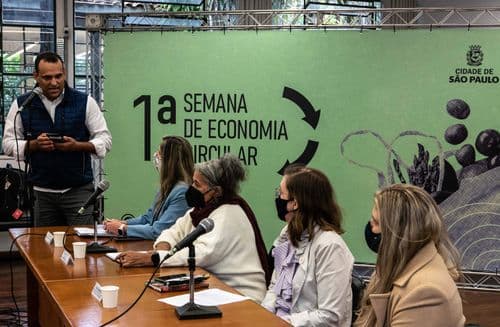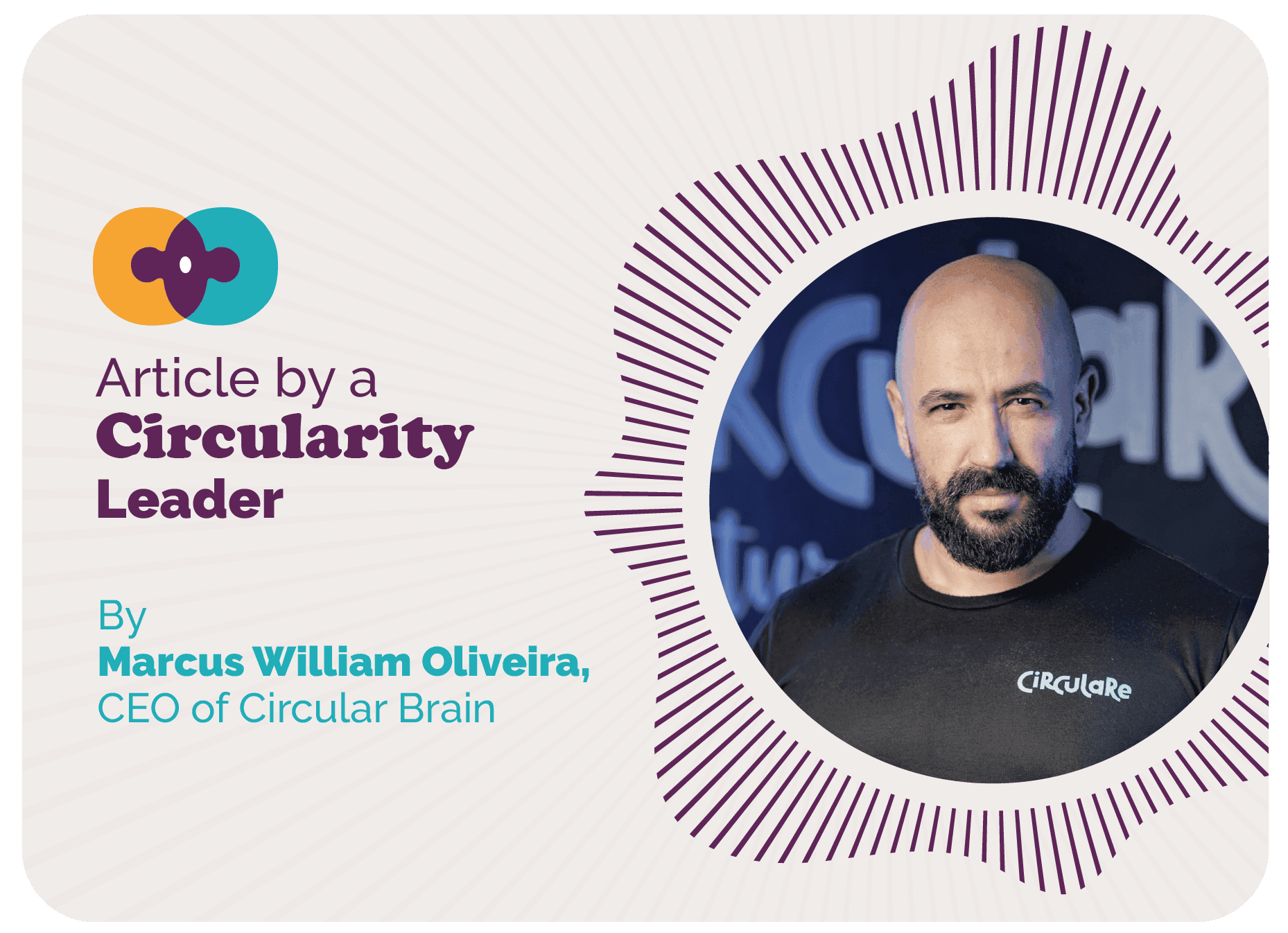
13/05/2022
First Week of Circular Economy in Latin America
Over the course of four days, hundreds of people, businesses, organizations and public authorities gathered around debates about the circular economy and the possible ways to transition from the current model of linear economics to more circular ways of producing, consuming and disposing. Nine panels were held with attendants, with live and online broadcasting. This was the 1st Week of Circular Economy of São Paulo, held between May 4 and 7, in the São Paulo state capital city, with the participation of the Circular Movement, the largest open educational initiative for the circular economy in Latin America.
The event was promoted by the City of São Paulo, through the municipal agencies for International Relations and the Green and Environment, in partnership with the Ellen MacArthur Foundation (EMF) and the Ibero-American Union of Capital Cities (UCCI). The Circular Movement was a supporter of the "Education and Circular Economy" panel and a special guest on "The importance of Innovation for the Circular Economy".
Education and innovation for the Circular Economy
The Environmental Education panel was mediated by Vinicius Saraceni, General Coordinator of the Circular Movement and had the participation of Dr. Sueli Furlan, a professor at USP and Educational Ambassador of the Movement, along with journalist Thaís Brianezi, of the Secretariat for the Green and Environment of São Paulo; Claudia Abrahão, of the Municipal Secretariat for Education of São Paulo and the Head of Marketing of Circular Brain, Lívia Santarelli. Moreover, "The importance of Innovation for the Circular Economy" panel was attended by Professor Dr. Edson Grandisoli, Educational Coordinator and Educational Ambassador of the Circular Movement; Gustavo Fonseca, Manager of new business at Boomera Ambipar, partner of the Circular Movement; Flávio Salsoni Machado, CEO of Valora and mediation of ADE Sampa's Project Manager Green Sampa, Bárbara Almeida.
Besides contributing to the mission of the Movement, to disseminate knowledge about the circular economy to more and more people and places, the event also provides the generation of new opportunities. "The week was very positive to reinforce our approach and connection with various players, to expand the scope of the movement and the agenda of circularity, besides opening up paths to take the circular economy further and further", celebrates Vinicius Saraceni, General Coordinator of the Circular Movement.
For Professor Dr. Sueli Furlan, this is another chance to reinforce how it is possible to build new ways of thinking:
"The circular economy is about a rupture. It may seem much more connected to the waste issue, but it's primarily linked to the needs that we create, the choices that we make and the way of life that we build and replicate across the planet. We need to introduce a new paradigm of society, because another type of society is also possible", the professor defends.
Eight panels held on May 5 and 6 were broadcast live and can be watched on the YouTube channel of the Municipal Secretariat for International Relations (SMRI).
Professor Dr. Edson Grandisoli points out that initiatives like this are essential to educate the whole chain about the co-responsibility needed in the circular economy.
"Some people have already adopted practices of circular economy and don't even know this, because they don't know the concept. Recycling, reducing waste, reusing rainwater, replacing electrical energy with photovoltaic energy, all of this dialogs directly with the idea of circular economy. But it's also very important for people to understand that the circular economy involves different players: those who produce, transport, consume and manage the waste, all of this chain has to take responsibility and the dialog among these different actors has to be guaranteed in order to build common solutions and processes for the entire chain", he stresses.
The Circular Talks on "The Importance of Innovation for the Circular Economy", in which Professor Edson participated, can be seen on Ade Sampa's YouTube channel.
This was the first week exclusively dedicated to the topic held in Brazil and Latin America and registered the presence of more than 40 consular representations from 22 countries, besides a technical visit to the district of Parelheiros, in the south of the municipality of São Paulo, with representatives from Uruguay, Colombia and Argentina. The municipal secretary of International Relations of São Paulo, Marta Suplicy, reinforces the aspirations of the event.
"We are pleased to open the first week for Brazil and Latin America, inspired by the experiences of London and New York. Like them, we are committed to transforming São Paulo into the Capital of urban sustainability in our country. Circular economics goes well with the 21st century, not only by combating climate changes and promoting reimagined sustainable development, it is also an innovative and transformative tool of our reality - promoting social justice and improving the cities in which we live. Cities can and must be the facilitators of the transformations necessary for this systemic change", she concludes Marta.
What is circular economy?
The Circular Economy proposes a new look at our way of producing, consuming, and disposing, in order to optimize the planet's resources and generate less and less waste. In other words, an alternative model to the Linear Economy - to extract, produce, use and discard - which has proved to be increasingly unsustainable throughout history. In the Circular Economy, the goal is to keep materials in circulation longer by reusing them until nothing becomes waste! For this model to become a reality, we all have a role to play. It is a true collaborative circle, which feeds itself, and helps to regenerate the planet and our relations.

